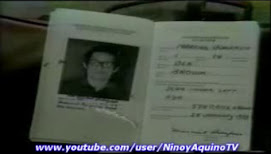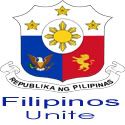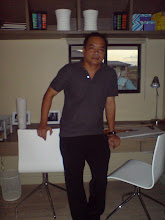I have seen him grow up and become the person he is today, and it gives me unending joy and sense of fulfillment to know that this artistic, talented and sensitive young man is my own son. I, therefore, defy anyone to refer to my son, or to anyone with ASD for that matter, as being less than normal, or as autistic, or as disabled, or as being afflicted with a disease. Having ASD does not define my son. If anything, ASD defines the amount and kind of care, attention and supervision that a parent has to take in nurturing their child. But what defines a person with ASD, as well as his or her family, is the kind of person he has become over and above autism.:
A very pleasant morning to all of you gathered here today. Don’t you all think it’s a great day for a walk! It’s a bit chilly, yes, but there is no such thing as bad weather – or even bed weather – when what is at stake is a worthy cause.
I wish to thank the Autism Society Philippines for organizing this event, and for inviting me and the Commission on Human Rights to participate in the Angels Walk for Autism. This is a great away to raise awareness about the Autism Spectrum Syndrome or Disorder (ASD) and in jumpstarting efforts to solve this insidious problem affecting millions of families the world over – and I’m not talking about autism.
Autism is a disorder. Having a family member with autism can work untold hardships on the whole family. However, the truth of the matter is that the real challenge in the present state of things is not autism itself because autism is not a “problem” to be solved. It’s a fact. It’s a reality that must be dealt with.
It’s a disorder that afflicts, according to estimates, 1 in 150 children. If and when a definitive cure or treatment is found, that is well and good for those afflicted and their families. However, at this point, the real problem is the proper way to deal with it and its consequences and, most importantly, to do what is best for the interest of the person with ASD.
The greatest obstacle – the insidious problem that I am referring to – therefore, is society’s, including family members’, attitude towards autism and similar disorders. I refer to most family’s penchant for secrecy and their persistent yearning for the appearance of “normalcy” that, at times, even border on self-denial. The reason for this attitude is, perhaps, understandable when we consider that a sense of protectiveness is but a natural reaction to be expected from parents and well-meaning family members. They fear the reaction of the socially dominant – or the “neurologically typical” – towards their loved ones. They fear that, by “exposing” their loved ones to society would make them vulnerable to ridicule and ill-treatment.
Though such fears are not unfounded, unfortunately, the approach taken by these families – of enshrouding the real situation in secrecy – perpetuates the problem, and hinders the progress towards understanding and acceptance. By being obsessed with trying to blend in with the socially typical, the real needs of the most important person in the equation tend to be neglected. The simple truth is that the last thing that a child or a person with ASD needs is to be treated like any other person. In truth and in fact, the reality is that they have special needs, and to ignore this is to do them a disservice.
The myth that "all will be well if higher functioning ASD people can pass as normal" still exists today. Fortunately, however, through the efforts of individuals and organizations like the Autism Society Philippines, more and more people are coming out and sharing their personal experiences with dealing with autism, while others who do not have direct and personal stakes are also stepping up to show their solidarity with those who do.
For me, as a mother personally dealing with ASD, one of the most important developments in the area of autism is the focus on autism as a neurological state shared by a minority of the population, which bears some difference from that shared by the majority or those who are socially dominant. In a nutshell, people with autism are different from those who are not. It’s an undeniable fact, and belaboring that point serves no purpose. Instead, we must focus on what people with autism are and what they can do, and not on what they are not and what they cannot do.
Personally, this frame of mind has played a key role in my own experience with ASD. My son Israel , who is now twenty-six years old, was born with this condition. Rearing him has not been a simple task. But, then again, I doubt that any parent could ever claim that raising child is an easy task – with or without autism. I, as his mother, have dealt with challenges other parents probably did not have to deal with. But, just the same, those other parents have had to face problems I did not have to face in raising my son.
I have seen him grow up and become the person he is today, and it gives me unending joy and sense of fulfillment to know that this artistic, talented and sensitive young man is my own son. I, therefore, defy anyone to refer to my son, or to anyone with ASD for that matter, as being less than normal, or as autistic, or as disabled, or as being afflicted with a disease. Having ASD does not define my son. If anything, ASD defines the amount and kind of care, attention and supervision that a parent has to take in nurturing their child. But what defines a person with ASD, as well as his or her family, is the kind of person he has become over and above autism.
“The Theory of Relativity, “The Last Supper,” “The Declaration of Independence,” and the song “Imagine.” These are the things that come to mind when we speak of Albert Einstein, Leonardo da Vinci, Thomas Jefferson and John Lennon. It was their achievements that immortalized their names. Long after their deaths, people still remember them with awe and great respect for what they have accomplished. Not many people are aware that these four famous people are just some of those who had shown ASD spectrum traits. And why not? This fact is nothing more than a footnote in their life stories.
With the growing understanding of autism, and the increase in the funding and prioritization of studies into ASD, it is not hard to imagine that more Einsteins, da Vincis, Jeffersons, Lennons, Isaac Newtons, Charles Darwins, Mozarts and Michaelangelos will soon emerge. But all this begins with raising people’s awareness and encouraging them to step up, share their experience and contribute to the growing knowledge about how to deal with autism.
Anyway, what are we afraid of? The worst that could happen is that our children and our loved ones would be deprived of the opportunity to reach their full potentials – and this is exactly what would happen if we remain silent and allow ASD to take over our lives. From this day forward, we must take the reign and assume a proactive role.
As for the role of the Commission on Human Rights, the CHR shall endeavor to meet the diverse needs of people with autism and their families. In this, the Commission is guided by the four core values of human rights law that are of particular importance in the context of autism:
- The dignity of each individual, who is deemed to be of inestimable value because of his/her inherent self-worth, and not because he/she is economically or otherwise “useful;”
- The concept of autonomy or self-determination, which is based on the presumption of a capacity for self-directed action and behavior, and requires that the person be placed at the center of all decisions affecting him/her;
- The inherent equality of all regardless of difference; and
- The ethic of solidarity, which requires society to sustain the freedom of the person with appropriate social supports .
One last point I wish to make. It is a huge mistake to assume that, just because there is one name for the condition – “autism” – does not mean that everyone who has it are all the same. Just as people who are seen as “neurologically normal” have diverse needs and capabilities, so do people with autism. Some need more supervision than others, others are more self-sufficient than others; some are mathematically gifted, others musically and artistically. Because of this immense diversity in terms of traits and capacities among persons with autism, the appropriate attention, care and nurturing must be given.
Determining what is appropriate, however, could be tricky. It requires a lot from family members and, yes, even society. This is where the sharing of knowledge and experience becomes crucial. This is where the efforts of society becomes indispensable. To quote the poignant declaration of the Autism Society of America:
[We] have a moral and ethical obligation to identify, treat and care for people with autism spectrum disorders so that they can attain their full potential. …[T]he systemic lack of care violates the fundamental human rights of people with ASD…
People on the autism spectrum are entitled to human rights, and nations of the world have a moral obligation, backed by international law, to protect and deliver on those human rights. The lack of adequate health care, the disarray of education and service options, the almost complete absence of employment options, and the scattered, often non-existent, supply of services and supports for the estimated 15 million humans with autism highlight that these rights are violated daily in countries everywhere.
Change must come soon. Addressing the issue of the human rights of persons with autism – as well as those of their family – is our concern as a society. After all, as George Bernard Shaw once said, “The worst sin towards our fellow creatures is not to hate them, but to be indifferent to them: that’s the essence of inhumanity.”
Once again, in behalf of all the mothers, fathers, brothers, sisters, friends and other family members who are dealing with autism on a daily basis, we thank the Autism Society Philippines for organizing this event. We hope that this event proves to be a harbinger of better things to come for our loved ones. All we hope for is for them to enjoy the best life possible.
Let’s all enjoy our walk!
http://groups.msn.com/Autismsite/famouspeoplewithautism.msnw
http://ezinearticles.com/?11-Amazing-Autistic-Famous-People&id=543023
One in every 150 child is diagnosed with autism and every 20 minutes there is a child diagnosed with autism. Out of 10 children with autism only one is likely to be female. My daughter is one of the uncommon cases.
I got those knowing looks and rude judgment on how my daughter got autism but none of them were right.
Many parents concern involved what their child will be when they grow up, will they be a doctor a lawyer or to whom will they get married. But for parents of children with autism, our concerns are different. How will my child be able to survive when I am gone?
With children with autism, tantrums in public are common, and so are the harsh looks and the unfair judgments that my daughter is a brat or that I am a bad mother. I know that my daughter must face the world without me one day. She must have friends. She must have opportunities.
On World Autism Awareness Day respect the parents of autistic children and remember the role they play in helping their children realize their fullest potential in life.


Location: Manila, Philippines
Name: “AutisMusical”
Description: Autism Society Philippines is having a WAAD Concert featuring a young Filipino musical prodigy with autism, Thristan “Tum Tum” Mendoza, on April 2 at 4:00 PM at SM The Block in North EDSA, Quezon City in celebration of the 2nd World Autism Awareness Day. Only 19 years old, Tum Tum, with his marimba and other percussion instruments, will share the stage with other musically-talented Filipinos with autism.
Lectures on “Understanding the Special Shoppers (with Autism)” are ongoing from March to April for security guards, housekeepers and other frontliners in the different branches around the country of SM Super Malls – the Philippines’ largest chain of shopping malls, including the second and the third biggest malls in the world.
ASP’s 37 chapters around the country will also be holding different events, like photo and painting exhibits, variety shows, Family Day, and others in the activity centers of SM Malls.
ASP has been helping people with autism and their families to empower themselves for more than 20 years. We are a not-for-profit organization with more than 6,000 members in the country.
To learn more about ASP’s first WAAD event last year, please click the site below:
http://www.youtube.com/watch?v=tWGinEGg7sk and http://www.gmanews.tv/largevideo/related/20513/Autistic-children-display-talents-during-1st-World-Autism-Awareness-Day
Contact: Mr. Ranilo Sorongon, Executive Director, Autism Society Philippines
Phone: (632) 926-6941; (632) 929-8447
Email: autismphil@pldtdsl.net
Website: www.autismsocietyph.org


















Autism is an importand and curious diagnosis. It can be so devestating. Thanks for the Stories
ReplyDeleteStill a lot don't know what is autism for them its abnormal but it is not. Like you I salute the parents May the Lord give them more strenght to tackle what lies ahead and their children will treated with respect and understanding.
ReplyDeleteLuckily I was able to post about this just on the nick of time. I just finished my exam so I'm able to blog hop.
Thanks for the dug pala. More power and God Bless
Autism blog, thanks for posting your comment. I've checked out your site and I intend to revisit to make my suggestions. You're always welcome here. God bless to all of you at Autism blog!
ReplyDeleteAna, I'm glad you were to able to make a post on this one. I submitted it to digg.com.
I just realized we're also supposed to submit our articles to the event at Bloggers Unite.
I've made my submission yesterday pa pero di ko pa siya nakikita sa list ng participating blogs. It seems it takes some time for the people at Bloggers Unite to screen and list the submitted articles.
All of God's best for you, your husband and your son, Magnus!
Hi Rolly, wow that speech of Atty. Lima says it all. Thanks for showing concern and raising awareness on Autism and for the prayers many many thanks. God bless you too. Happy Easter!
ReplyDeleteI know that Atty. De Lima's speech will give you hope and encouragement, Earth! After all, Israel De Lima is already 26 years old. I can just imagine how beautiful and accomplished Anastacia will be when she reaches that age. That will be a day to look forward to.
ReplyDeleteGod bless always!